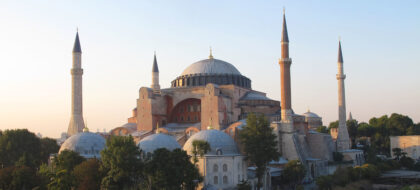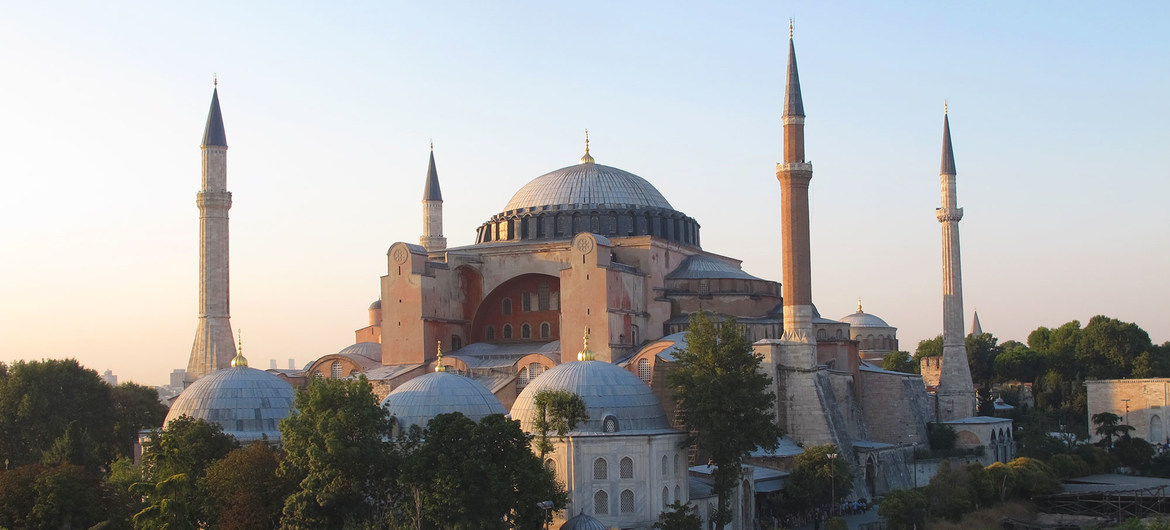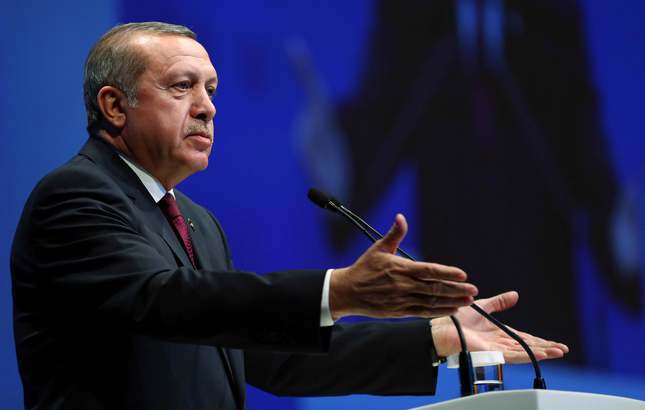 As the Turkish President signed a decree on Friday converting the ancient Hagia Sophia in Istanbul into a mosque, the UN cultural agency (UNESCO) said that it “deeply regrets the decision” made “without prior discussion”.
As the Turkish President signed a decree on Friday converting the ancient Hagia Sophia in Istanbul into a mosque, the UN cultural agency (UNESCO) said that it “deeply regrets the decision” made “without prior discussion”.
UNESCO had earlier in the day called on Turkey to abide by its “legal commitments and obligations” in accordance with the monument’s status as a museum, on the World Heritage List, noting that in line with its designation, the Hagia Sophia “has a strong symbolic, historical and universal value.”
The majestic building was founded around 1,500 years ago as a cathedral and is widely regarded as the foremost example of Byzantine Christian architecture in the world. Following the rise of the Ottoman Empire, it became a mosque, but in 1934, it was designated a secular museum, shared by Christians, Muslims and those of all faiths or none, alike.
President Recep Tayyip Erdogan signed the decree Friday, following years of campaigning by a cultural association, and the decision earlier in the day by a Turkish court, handing control of the building over to the nation’s religious directorate and allowing it to reopen for worship as a mosque.
Reacting to the decision, Director-General of UNESCO, Audrey Azoulay, described the building as “an architectural masterpiece, and a unique testimony to interactions between Europe and Asia over the centuries. Its status as a museum reflects the universal nature of its heritage and makes it a powerful symbol for dialogue.”
UNESCO said in a statement issued before the decree that it had written to the Government and called for “dialogue” with the authorities, “before taking any decision that might impact the universal value of the site.”



